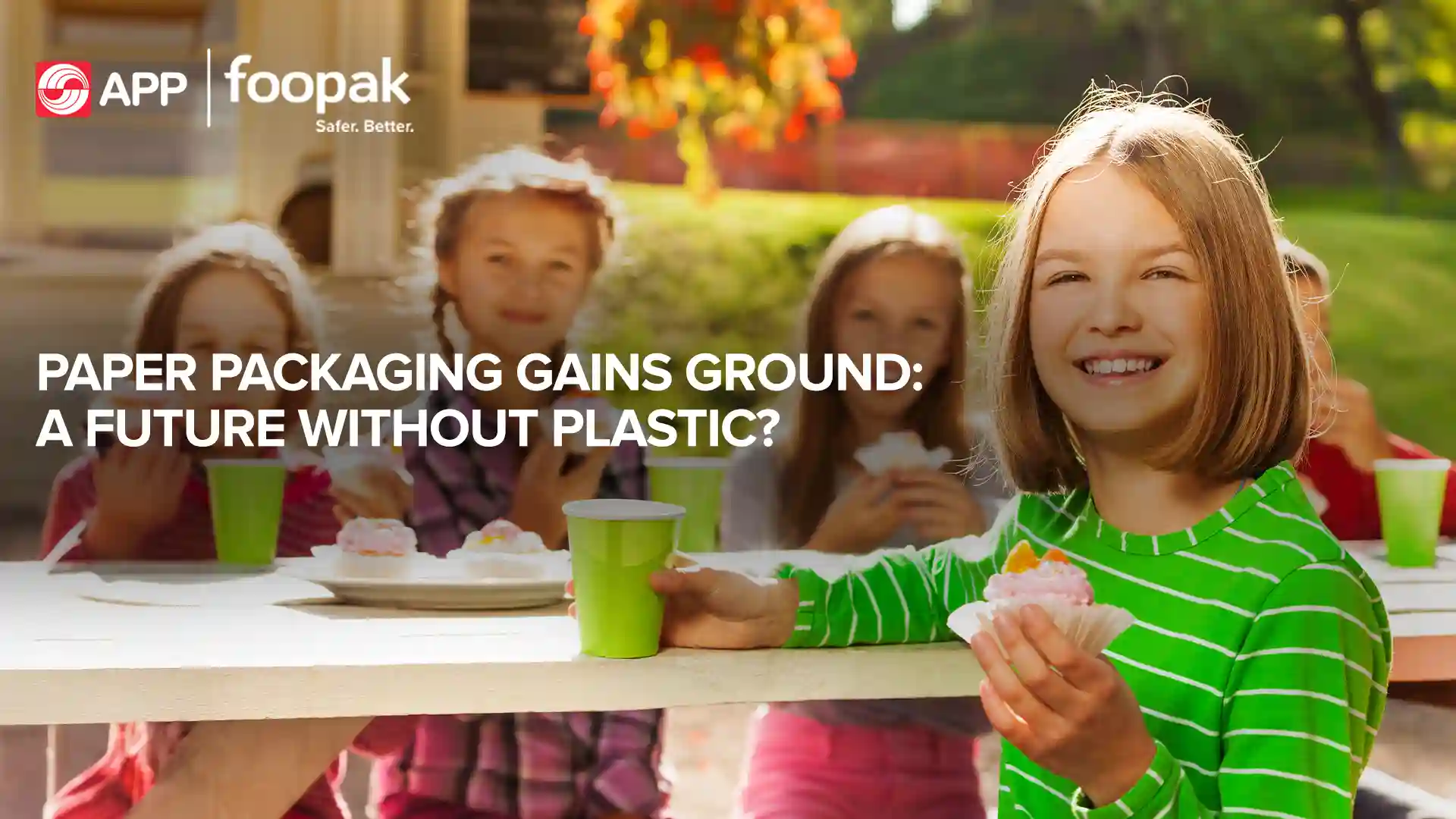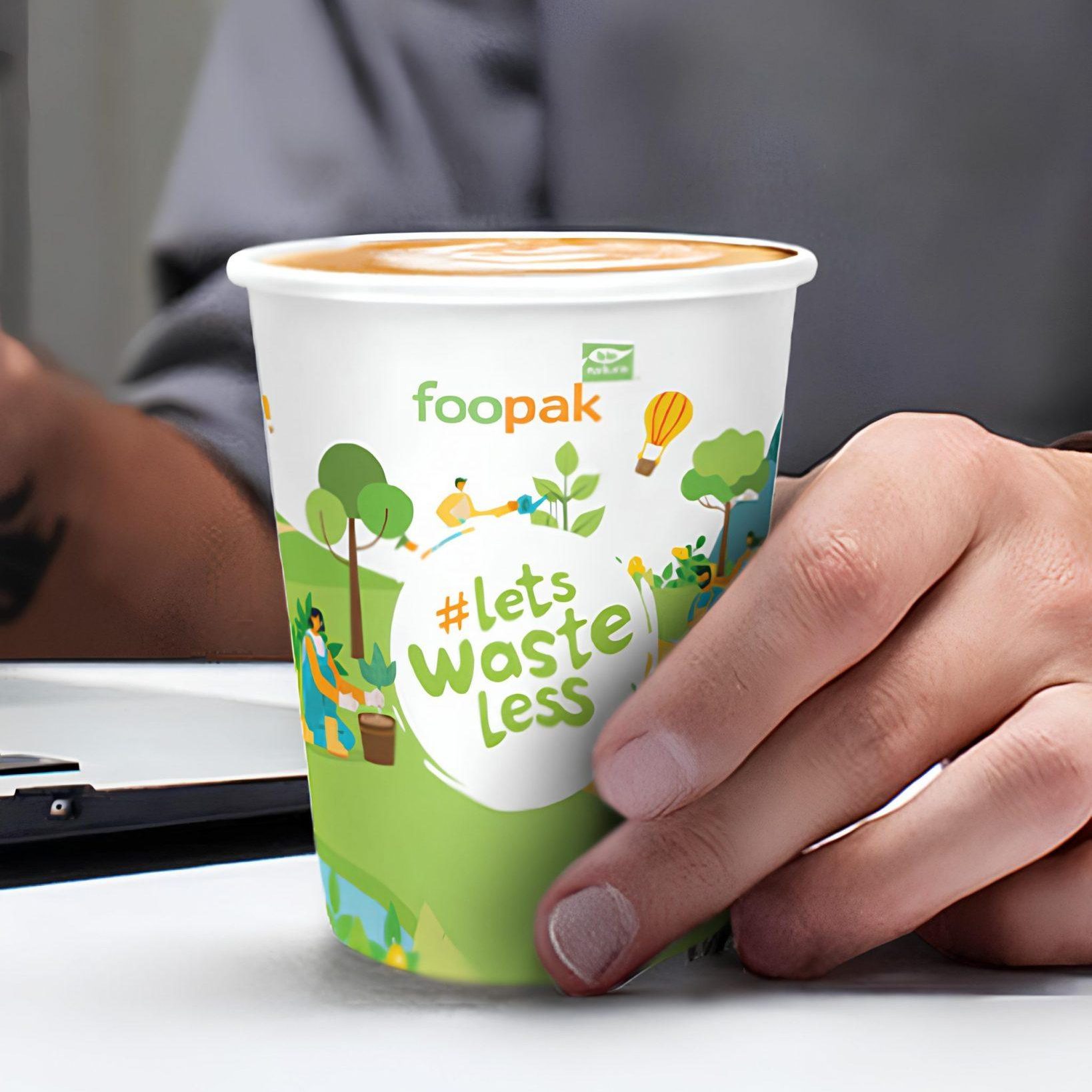The beverage industry is seeing a clear move away from traditional materials like glass and rigid plastic toward paper-based packaging. This trend is gaining speed as brands respond to consumer demand for more sustainable options, stricter environmental regulations, and new technologies that make paper suitable for a wider range of drinks.
New Data Shows Strong Momentum for Paper in Beverage Packaging
Recent research from PMMI, a US-based packaging and processing association with global industry reach, highlights a major shift in the beverage industry. According to their industry survey, beverage brands are expecting a 43% increase in paper-based packaging, alongside a 30% rise in flexible packaging and a 16% uptick in liquid cartons, while use of rigid plastic and glass is projected to drop.
This growth is mirrored in the wider market. The global paper packaging market was valued at USD 397.5 billion in 2024 and is expected to grow to USD 527.1 billion by 2030 at a CAGR of 4.8%. Specifically for food and beverage, paper packaging was worth USD 45.8 billion in 2024 and is projected to reach USD 69.3 billion by 2032. These figures underscore how quickly paper-based solutions are becoming a preferred choice as brands look for packaging that balances functionality with sustainability.
Key Drivers Behind the Shift
Several key factors are pushing beverage companies toward paper packaging.
1. Sustainability Demands and Regulations
Consumers are pushing for packaging that is recyclable, compostable, or made from renewable resources. At the same time, regulations such as the EU’s Single-Use Plastics Directive, extended producer responsibility (EPR) laws in parts of the United States, and plastic tax schemes in countries like the UK are forcing brands to reduce plastic use. Switching to paper helps meet these rules while improving brand reputation.
Read More: What the EU’s Single-Use Plastics Directive Means for Food and Beverage Companies
2. Cost and Logistics Advantages
Paper packaging is generally lighter than glass, which can weigh up to ten times more for the same volume. This weight reduction cuts transport fuel costs and lowers carbon emissions. Paper can also be less expensive to produce than rigid plastic in regions where recycled fiber supply is strong, helping brands manage costs while improving sustainability metrics.
3. Advances in Packaging Technology
Modern water-based and bio-based barrier coatings now make paper suitable for liquid and moisture-sensitive products without relying heavily on plastic laminates. High-quality digital printing also allows for vivid branding on paper surfaces, making them visually competitive with traditional materials.
Declining Use of Glass and Rigid Plastic
While paper’s market share is climbing, glass and rigid plastic are losing ground. According to PMMI data, rigid plastic packaging in beverages is expected to decline by 2% over the next few years, while glass packaging is projected to see a 6% drop.
Factors driving this decrease include higher transportation costs for heavy glass, increased breakage risk, and consumer perceptions that plastic is less eco-friendly. As regulations and consumer expectations evolve, brands are rethinking the role of these materials in their portfolios.
Implications for Beverage Brands

The move toward paper packaging offers both opportunities and challenges for beverage brands.
1. Invest in Compliant Materials
With increasing bans on single-use plastics and PFAS, brands need packaging that meets global regulations. Foopak paperboard is PFAS-free and food-safe, ensuring compliance.
2. Cut Logistics and Damage Costs
Switching from heavy glass to lightweight paperboard reduces transport expenses and minimizes breakage. Foopak solutions are engineered for frozen, chilled, and ambient beverages.
3. Strengthen Sustainability Credentials
Consumers are favoring recyclable, responsibly sourced packaging. Using Foopak paperboard demonstrates commitment to sustainability and builds brand trust.
Read More: The Smart Choice: Make a Sustainable Impact with PEFC-Certified Paper Packaging
Beverage brands that want to prepare for the future can work with Foopak for strong and safe paperboard materials. Foopak’s paperboard helps brands and their packaging partners meet new rules, lower transport costs, and reach sustainability targets, while still giving consumers the packaging they expect.

